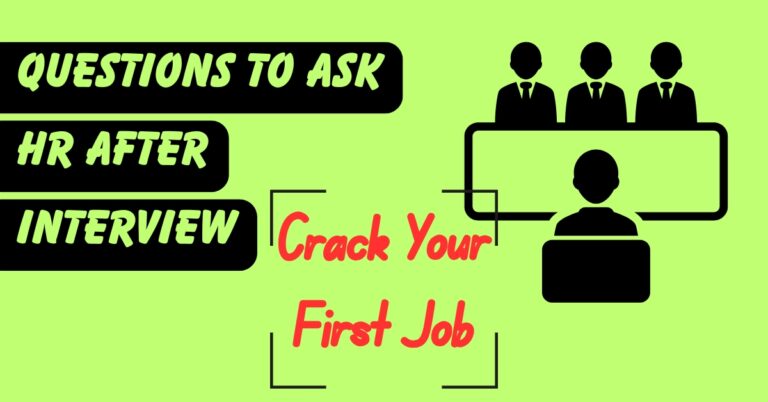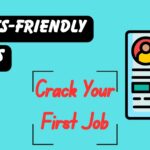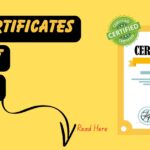Hey! I am Ayush Tiwari, Career Blogger | Online Earning Enthusiast | Job Market Researcher. If you want to learn from home and add value to your profile, go through this blog.
Have you ever walked out of an interview and wondered what to do next? Or maybe the HR asked, “Do you have any questions for us?” and your mind went blank? You’re not alone.
Many candidates focus only on answering questions and forget that interviews are also a chance to ask questions. Smart and respectful questions can help you understand the job better and leave a strong impression on the recruiter.
In this blog post, I will guide you through 11 smart questions to ask HR after the interview. I’ll also share tips, sample phrases, FAQs, and a professional conclusion so that you are fully prepared.
Let’s dive in.
Why Should You Ask Questions After the Interview?
Asking thoughtful questions shows that:
-
You’re serious about the job
-
You want to make the right decision
-
You’re confident and prepared
-
You respect the company’s culture and goals
Most importantly, it helps you decide if the company is a good fit for your career.
When Is the Right Time to Ask HR Questions?
There are usually two chances:
-
At the end of the interview when HR asks, “Do you have any questions for us?”
-
In a follow-up email after the interview
Use both chances wisely. Let’s look at the best questions to ask.
11 Smart Questions to Ask HR After Interview
Here are the top 11 questions I recommend, explained in simple words with examples.
1. What are the next steps in the hiring process?
👉 This shows that you’re eager and interested. It also helps you understand what to expect next.
🗣 Example: “Thank you for the discussion today. May I know what the next steps in the hiring process will be?”
2. When can I expect to hear back from you?
👉 This question shows respect for their timeline and helps you avoid unnecessary follow-ups.
🗣 Example: “By when do you usually get back to candidates after the final interview?”
3. Can you share more about the company’s work culture?
👉 Asking this shows that you’re interested in the company as a whole, not just the salary.
🗣 Example: “I’d love to understand more about your team culture and what it’s like to work here.”
4. How do you measure success in this role?
👉 This helps you understand the expectations and goals.
🗣 Example: “What does success look like in this role during the first 3 to 6 months?”
5. Are there growth or learning opportunities in this role?
👉 This tells HR that you’re planning for the long term, which they’ll appreciate.
🗣 Example: “Does this role offer opportunities for training, upskilling, or career growth?”
6. Who will I be reporting to directly?
👉 Understanding your manager or reporting person helps you know who will guide or evaluate you.
🗣 Example: “Can you tell me more about the reporting structure for this role?”
7. What are the common challenges in this role?
👉 This is a thoughtful question that shows you’re realistic and ready to face challenges.
🗣 Example: “What are some challenges people in this role have faced, and how do they overcome them?”
8. How do you support employees’ work-life balance?
👉 In today’s world, balance matters. This shows maturity and long-term thinking.
🗣 Example: “How does the company help employees maintain a healthy work-life balance?”
9. Is this a newly created role or a backfill?
👉 This helps you understand whether the company is growing or replacing someone, which gives insight into the work environment.
🗣 Example: “Is this position newly created, or are you filling an existing role?”
10. What is the team structure like?
👉 This helps you imagine how you’ll collaborate with others.
🗣 Example: “Can you describe the current team I’d be working with?”
11. Do you have any concerns about my qualifications?
👉 This is bold, but asking it shows confidence. It also gives you a chance to clear doubts immediately.
🗣 Example: “Do you have any hesitations about my fit for the role that I can address?”
Extra Tip: How to Ask These Questions Politely
Here are some polite ways to start:
-
“Would you mind if I ask…”
-
“May I know…”
-
“Can you please share more about…”
-
“I’m curious to know…”
Be confident, smile, and always thank the HR at the end.
What Not to Ask HR After Interview
Avoid questions that are:
❌ Too personal
❌ About salary too early
❌ Already answered in the job post
❌ Sound like you didn’t pay attention
Sample Follow-Up Email with Questions
Here’s a quick email example I use after interviews:
Subject: Thank You – Follow-Up on Interview
Dear [HR’s Name],
Thank you for the opportunity to interview for the [Job Title] role. I enjoyed our conversation and learning more about your team.
I had a couple of questions I wanted to follow up on:
-
What are the next steps in the process?
-
Could you share more about the team structure for this role?
Looking forward to your response.
Best regards,
[Your Name]
Frequently Asked Questions (FAQs)
1. Is it okay to ask HR questions after the interview?
Yes, it’s not only okay — it’s smart! Asking questions shows that you’re serious and engaged.
2. How many questions should I ask HR?
2 to 4 thoughtful questions are ideal. Don’t overload them, but don’t say “no questions” either.
3. Can I ask HR about salary after the interview?
If the HR has already discussed salary, you can ask follow-ups. Otherwise, wait until the offer stage or second interview.
4. Should I email HR if I forgot to ask something during the interview?
Yes! Send a short and polite follow-up email. It’s a great way to show interest and ask any missed questions.
5. Can asking the wrong question hurt my chances?
Unfortunately, yes. That’s why you should avoid lazy or irrelevant questions. Always prepare in advance and stay professional.
Conclusion: Think Long-Term, Not Just One Interview
From an HR’s point of view, candidates who ask the right questions stand out as thoughtful and future-focused.
From a job seeker’s perspective, asking questions helps in making an informed choice.
From my personal experience, every good job I got started with a good conversation after the interview.
So, next time you’re in an interview, don’t just answer — ask.
Asking smart questions isn’t about showing off — it’s about showing you care about your future.
– Ayush Tiwari
Career Blogger | Online Earning Enthusiast | Job Market Researcher
Read these also!


